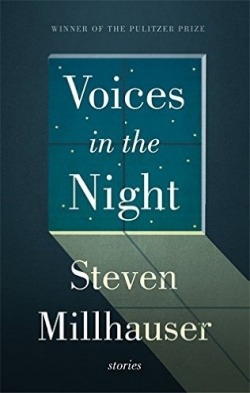In a universe of overused adjectives, there’s one you rarely hear: ‘spellbinding.’ Perha
In a universe of overused adjectives, there’s one you rarely hear: ‘spellbinding.’ Perhaps that’s because very little holds our rapt attention as if by some cold magic. The best Steven Millhauser stories, as fans of his many collections know, do exactly this. They cast a spell from which there is no release. But the sorcery chooses certain victims. I was thrown when my brother confessed he found 2008’s Dangerous Laughter a puzzling antique, its narratives at once too fanciful and inscrutable.An explanation for this divisive quality derives from a fellow fan, who suggested to me that Millhauser writes about being overly sensitive to the world. I couldn’t agree with her more, especially as his latest collection, Voices in the Night, reinforces her theory. 'The Wife and the Thief’ unfurls with a slow Gothic dread worthy of Edgar Allan Poe himself, generated by nothing more strange than suburban paranoia: a woman finds herself sleepless next to her peacefully slumbering husband in bed and imagining (or not imagining) a cat burglar prowling about their home. But which condition does she really desire – being correct and therefore threatened, or delusional and therefore mad? The chill of the story is how she tries to reconcile both outcomes into a single, ungraspable reality.From “Unsaid, Unknown, Unreal,” a review of Steven Millhauser’s latest for Review 31. -- source link
Tumblr Blog : thenotes.tumblr.com
